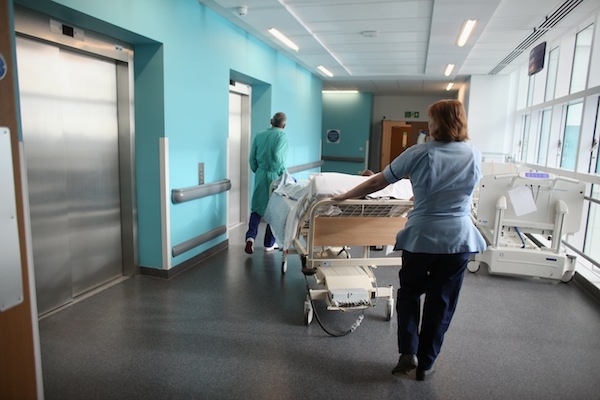The Assisted Dying debate in the House of Commons will be well worth re-reading or watching in full: it has been one of the best. The Bill will not progress any further, after MPs voted 330 to 118 against giving it a second reading.
You can listen to some of the very best speeches from a morning of thoughtful, respectful, passionate debate here. But one speech that elicited unusually loud noises of dissent from across the Chamber was from Labour’s Paul Flynn, who suggested that assisted dying is already happening in hospitals. He said that doctors who reassured family members that patients would not suffer any pain were ‘going to operate the practice of double effect’, adding:
‘They will give the patient a lethal dose usually of morphine to kill them, they play a mind game of self-deception, pretending that that lethal dose is to relive pain. It’s not, it’s to kill the patient.’
He claimed that ‘people are being killed without their own permission’ – something Anne Main objected to on the basis that her husband was given a high dose of morphine when he was dying of cancer, but that this was not to kill him, but because of his unbearable pain.
So are doctors really upping the dose of morphine in order to hasten their patients’ demise? Certainly it is true that a very high dose of morphine could sedate a patient, potentially moving them closer to death. Many patients whose illnesses are terminal are on very high doses of painkillers already – but still have months or a year to live and are walking around and able to enjoy certain aspects of their lives. Their doctors must balance the strength of their dose to manage their pain with a number of other concerns: namely the fact that a patient’s tolerance of a dose will increase over time and therefore they may need a higher dose, which therefore puts them at greater risk of a dose that is so strong that it will sedate them and put their life at risk prematurely.
But if someone is in their final days, in acute pain, bedridden and often unable to talk, doctors are duty-bound to increase the dose, often greatly, even though it risks sedating the patient because the focus of clinical care is on the quality of the patient’s remaining life, and death, not on the length of their life. This is where the misunderstanding occurs. It is not important that the patient dies at the time of the doctor’s choosing, as Flynn implies, but that they have the best possible death. This means reducing the pain, breathlessness and agitation as much as possible. It also means reducing what is known as ‘terminal anxiety’, which is a profound panic that some people display as death approaches. If someone can die in considerably less pain and in a peaceful, rather than agitated manner, then why wouldn’t a doctor give them a dose of medication that enables that?
This is the doctrine of double effect that Flynn was referring to, but he was not explaining it correctly. His explanation suggested that the main intention of the higher dose was to end someone’s life quicker so that they were not in pain because they were dead. But the intention of medics is to ensure as much as they possibly can that someone does not die in pain so that they are not in pain when they are alive. They are not trying to keep their patient alive for a long period (as they might be with a patient who has been given six months to live), so if someone dies a little sooner but in less pain, then that is a consequence worth accepting. But they are not trying to make them die sooner. They are trying to help them die better.
The doctrine of double effect also applies to treatments such as chemotherapy, which can harm and indeed kill patients – but which also saves or prolongs lives.
One of the supporters of the bill, Sarah Champion, made a passionate case for better access to palliative care. She ran a hospice before entering Parliament, and has concluded that the legislation is worth supporting. Others have spoken against the legislation. But many on both sides have highlighted the need to improve the way we approach death in this country. Even though the Bill has just been resoundingly defeated at second reading, it would be terrific if Parliament paid greater attention to how to better assist good dying, too.







Comments